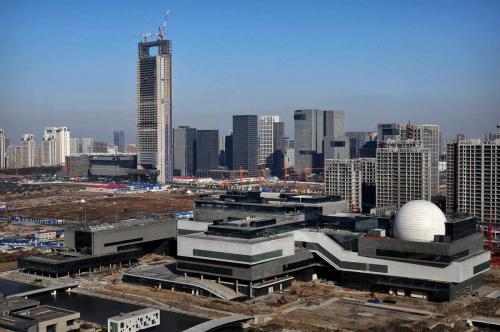A few days ago, copper prices and the Chinese stock market were roiled by speculation that another – the second in a row – Chinese bond default may be imminent, in the shape of Baoding Tianwei Baobian Electric (TBE) a maker of electrical equipment and solar panels, whose bonds and stock were suspended from trading a week ago after reporting massive losses. A few days later, TBE “promised” not to default when its next interest payment is due in July (although how the insolvent company can see that far into the future is just a little confusing). And yet the market shrugged and contrary to its recent idiotic euphoria to surge on even the tiniest of non-horrible news, barely saw a rise. Today we may know the reason: overnight Bloomberg reports that second Chinese corporate bond default may be imminent after the collapse and arrest of the largest shareholder of closely held Chinese real estate developer Zhejiang Xingrun Real Estate Co, which just happens to be saddled with 3.5 billion yuan ($566.6 million) of debt.
Debt which absent a bailout, which at this point is very improbable, will not be repaid.

From overnight Bloomberg reports :
Zhejiang Xingrun Real Estate Co. doesn’t have enough cash to repay creditors that include more than 15 banks, with China Construction Bank Corp. (939) holding more than 1 billion yuan of its debt, according to the officials, who asked not to be named because they weren’t authorized to discuss the matter. The company’s majority shareholder and his son, its legal representative, have been detained and face charges of illegal fundraising, the officials said.
What is curious about this particular potential default is that it touches not only on the massive leverage in the Chinese system, but on the one real bubble in China (since nobody there seems to care about the Shanghai Composite): housing.
The collapse of the company, in the eastern town of Fenghua, adds to concern of strains in China’s real estate sector. The property market in smaller Chinese cities faces “true risks of a sharp correction†due to oversupply and investors may have underestimated the risk, Nomura Holdings Inc. economists said in a March 14 report.

